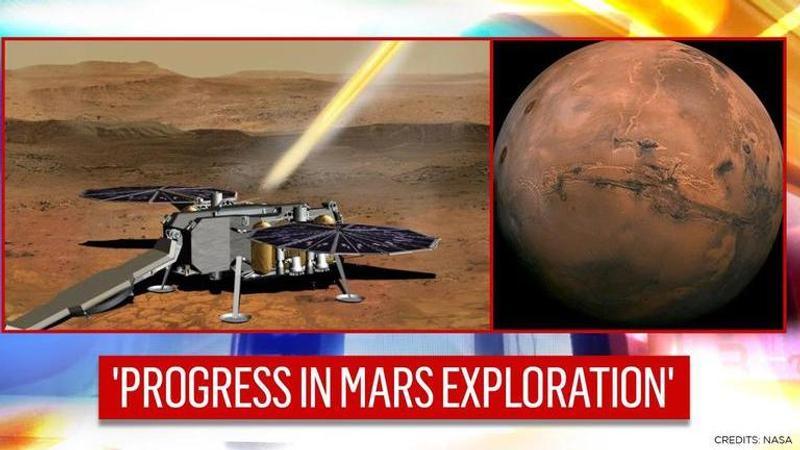Published 16:11 IST, November 15th 2020
NASA to bring rock samples back to Earth in Mars Sample Return (MSR) campaign
NASA informed that the Mars Sample Return (MSR) campaign would bring the pristine samples from the red planet for the scientific community to conduct research.

On November 14, NASA said that it was ready for a new campaign in collaboration with European space agency (ESA) to bring samples of rock and soil from Mars back to Earth. In a release, the space agency informed that the Mars Sample Return (MSR) campaign would bring the pristine samples from the red planet for the scientific community to conduct research.
“The agency established the MSR Independent Review Board (IRB) to evaluate its early concepts for a groundbreaking, international partnership with ESA (European Space Agency) to return the first samples from another planet,” NASA revealed in the document.
Further, taking to its official handle on Twitter, NASA informed that the Mars campaign will involve two robotic rovers that will accumulate the best specimens from Mars, and later, an elaborate delivery system will transport these rock material home. The study of the rocks will enable scientists to decipher whether life ever existed on Mars.
The agency’s “ambitious” Mars Sample Return plan was thoroughly examined and given go-ahead. The campaign will help in scientific advancements and the technical progress in further research related to the red planet. The MSR campaign will require three advanced space vehicles, NASA said, adding, that agency will deploy NASA’s Mars 2020 Perseverance rover.
“Mars Sample Return is something NASA needs to do as a leading member of the global community,” said NASA Administrator Jim Bridenstine. “We know there are challenges ahead, but that’s why we look closely at these architectures. And that’s why in the end, we achieve the big accomplishments,” he added.
According to NASA, the Mars sample collection has stayed a top priority for the National Academies’ Planetary Science Decadal Survey for 2013-2022, which prompted the space agency to work on the critical capabilities and overall MSR concept over the course of 3 years. The robust campaign is longstanding cooperation between NASA and ESA for the future planning and development of the human space exploration projects.
One step closer to 'eventual goal'
“NASA is committed to mission success and taking on great challenges for the benefit of humanity, and one way we do that is by ensuring we are set up to succeed as early as possible,” said Thomas Zurbuchen, NASA associate administrator for science at the agency’s headquarters in Washington.
“I believe this sample return will be well worth the effort and help us answer key astrobiology questions about the Red Planet – bringing us one step closer to our eventual goal of sending humans to Mars,” he added. The technically demanding, and multi-faceted planetary exploration program MSR will enable civilization-scale scientific discoveries.
ESA’s Director of Human and Robotic Exploration, David Parker said that the campaign “reinforces our shared vision to provide the world’s scientists with pristine pieces of the Red Planet to study using laboratory tools and techniques that we could never take to Mars.”
Updated 16:11 IST, November 15th 2020



